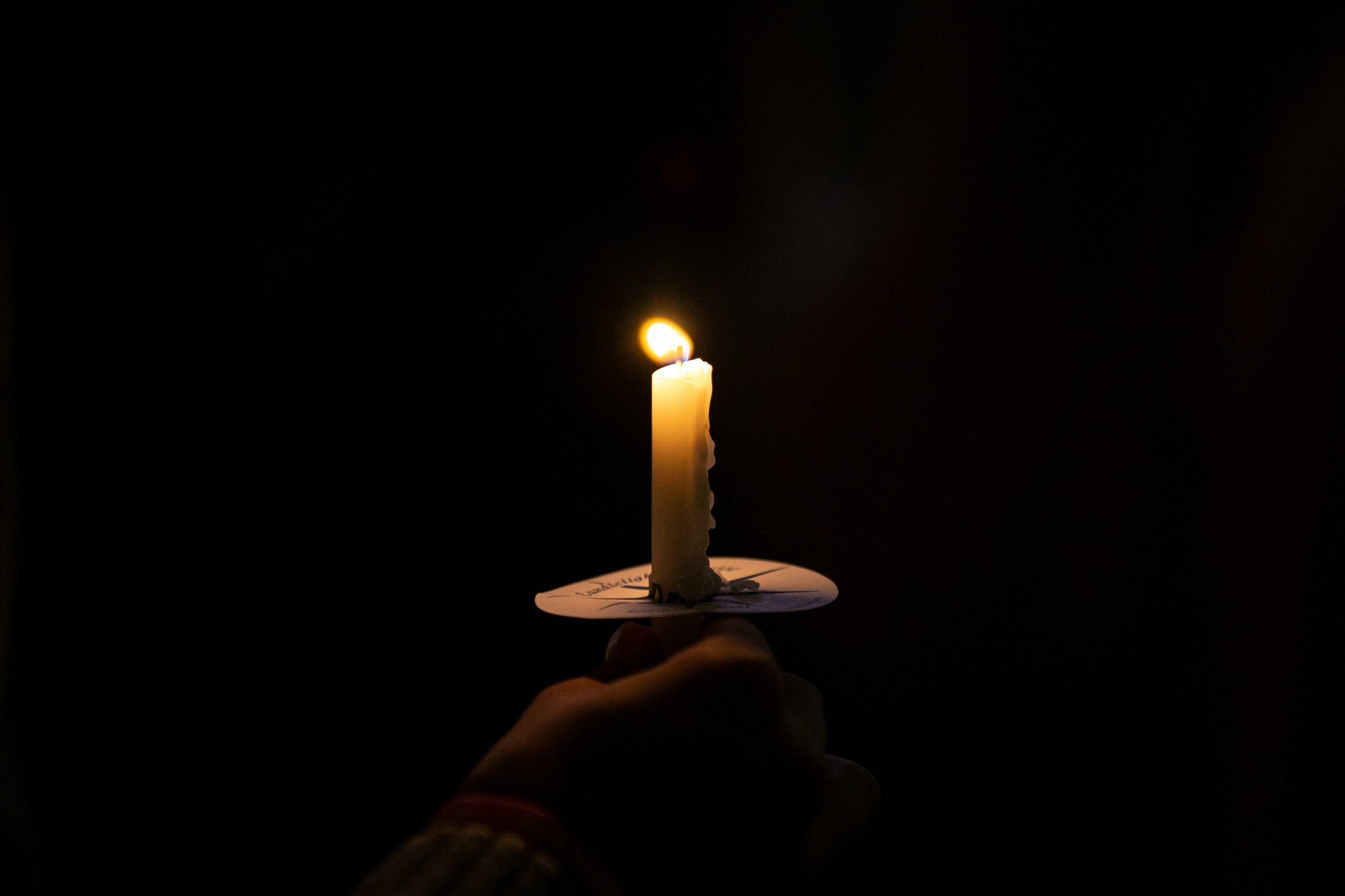
Encourage-[en-kur-ij] to inspire with courage, spirit, or confidence.
The enCourage Blog is weekly dose of encouragement in a world that is often filled with bad news. We offer life-giving entries each Monday and Thursday written by gifted women from across our denomination, the Presbyterian Church in America (PCA). You can subscribe below to have them delivered to your inbox. With hundreds of blog pieces, you can search on a variety of topics in the search bar above to read and share with friends. Christina Fox, a gifted author, serves as our enCourage General Editor. If you are interested in submitting a piece, you can contact her at cfox@pcanet.org.
Sign up for our weekly enCourage blog:
Words of Beauty, Ears that Hear
SUSAN BENNETT|GUEST Our words can either wound or bless, but Scripture shows us a better way. God calls us to speak truth with beauty, grace, and wisdom—and to cultivate ears that truly hear. We have all been guilty of saying the wrong thing at the wrong time. My mother-in-law used to say in one of those moments, “Open mouth, insert foot!” When that happens, it can range anywhere from a simple embarrassment to the wounding of a relationship. Have you noticed how Christian women are often made examples in comedy routines to promote laughter about this very thing? The problem is, it really is no laughing matter at all—especially if you are on the receiving end of a word that is not fitly spoken. What We Say Matters I want us, however, to focus on the positive: God’s truth spoken rightly and at just the right time. Proverbs 25:11–13 says: “A word fitly spoken is like apples of gold in a setting of silver. Like a gold ring or an ornament of gold is a wise reprover to a listening ear. Like the cold of snow in the time of harvest is a faithful messenger to those who send him; he refreshes the soul of his masters.”...
Happy New Year!
CHRISTINA FOX | EDITOR Happy New Year to you and yours from your friends at enCourage! "The steadfast love of the Lord never ceases; his mercies never come to an end; they are new every morning; great is your faithfulness" (Lam. 3:22-23).
The Call to Remember
LINDSAY FUNCHES | GUEST Apart from the two times when I actually forgot my children, the worst episode of mother forgetfulness in my life occurred in Atlanta, Georgia, when I had four children under the age of six. Having just moved to the area, we had been attending our new church for two months. Mary Boyde was five, Sam was three, Steele was nineteen months old, and Hayley was two months old. Steele had Crouzon Syndrome, a craniofacial syndrome like the boy in the movie Wonder, serious medical issues, and literally a dozen doctors. He wasn’t sleeping at night because of severe sleep apnea. Needless to say, I was exhausted as Christmas approached. As is often the case, our new church performed a magnificent Christmas pageant every year with the Sunday School children. Oddly enough, they held this Christmas pageant during the Sunday School hour...
Merry Christmas!
CHRISTINA FOX | EDITOR Merry Christmas to you and yours from all of us at enCourage! "And the angel said to them, 'Fear not, for behold, I bring you good news of great joy that will be for all the people. For unto you is born this day in the city of David a Savior, who is Christ the Lord. And this will be a sign for you: you will find a baby wrapped in swaddling cloths and lying in a manger'” (Luke 2:10-12). Photo by Laura Nyhuis on Unsplash
Awaiting the Light of the World
KERRY ANDERSON | GUEST I’ve always loved that we celebrate Christmas during the darkest week of the year (at least in the Northern Hemisphere). I love that Christmas lights start going up just as the days are the shortest. In the dark mornings, I love coming downstairs, not to a dark and lifeless kitchen but to the warm light of the Christmas tree that turns on before I wake up (thank you, light timers!). And I love that when we’re introduced to John, the forerunner to Jesus, in John 1, scripture tells us that John “came to bear witness about the light”…to tell us that “The true light, which gives light to everyone, was coming into the world” (John 1:6-8,9). There are so many descriptors and names for Jesus throughout the Bible, but in these verses, we’re told that what is coming is light, the true light. What we’re waiting on in this dark month is the Light of the World. O Splendor of God’s glory bright, from light eternal bringing light, O Light of light, light’s living Spring, true Day, all days illumining...
Singing Through Christmas in Minor and Major Keys
JOANNA HODGES|GUEST ‘Tis the season of bright and glimmering baubles, loud and busy parties, and exuberant and merry music. As we prepare for Christmas, we eagerly anticipate singing our favorite festive songs around the piano. Through well-known happy tunes in a major key, we proclaim “Joy to the World” because Christ came to crush the head of the serpent. We gather our friends to sing “O Come All Ye Faithful” and can’t wait to hear our kids shout “We Wish You a Merry Christmas” in the church program. Yet the more holidays God gives us in this broken world, the more we realize that every Christmas season rightfully includes not only the triumphal tone of major keys, but also the wistful waiting and somber tone of the carols in a minor key. A Partial Celebration Even though the Savior accomplished His earthly mission and sits at the Father’s right hand to reign in victory, those nagging foes of the world, the flesh, and the devil still assault us here on earth. They don’t take a vacation during Christmas, and often it seems they rear their ugly heads even more intensely this time of year. Our hearts may be filled with awe and wonder as we read our Advent devotional in the morning, yet by the afternoon we are overwhelmed by the Christmas day menu, family dynamics around the holiday table, and the jam-packed calendar of parties. We scroll through Facebook’s Time Hop pictures of past Christmas gatherings and realize how much our own bodies and those of our loved ones have been marred by disease, dysfunction, and death over the years. Sometimes it’s not easy to take a deep breath and sing “Hark! The Herald Angels Sing” with smiles on our faces when the sadness of a sin-cursed existence makes us want to silence our voices and quietly mourn....








